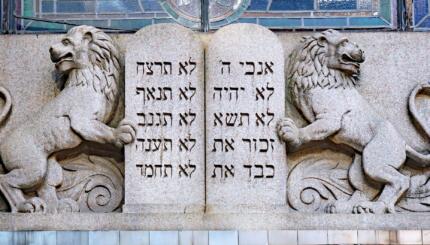I came to Jerusalem to fall in love. I’ve been spending my summer here, ostensibly, to study at the Shalom Hartman Institute with 150 or so rabbis from around the world. The first two weeks of my six-week adventure were dedicated to acclimating my young daughter and me to the time and life change of being here instead of the quiet hamlet we live in on the Georgia Coast. The second two weeks were dedicated to the learning program. And now, the last two weeks are for a great love affair.
I am going on dates with God. Well, that already is a misnomer. God is the aspect of The Sacred that I meet in prayer. And while yes, I am also longing for more God, I am really looking to reignite the spark in my love affair with that sense of Awesome, that feeling that there is something out there bigger than me and that none of us is ever alone. I’ll call it The Sacred or The Divine or something else capitalized because those terms work for me today to describe the ineffable. Tomorrow, I might find new words.
I grew up very close to The Divine. My sense of that was woven into everything I did, knew and felt. It was in my holidays, my learning, my family and my community. Early on, as a Jewish educator, I created and taught a class on the “Holy Bubble” creating a relationship with spirituality with middle schoolers. It became part of the work I did towards my Master’s degree. Spirituality came easy to me and I readily shared it with others.
And then something happened. Like many great love affairs, time and the business of life eroded the fabric that bound us together. And for a long time now I have felt that we have been far away.
But how does one draw near to something you cannot touch or see? In biblical times, our ancestors used sacrifices to connect to God. The word for sacrifice in Hebrew is korban. The root of korban means closeness or to draw near. Aaron and the priests knew what they were doing. Right now in our Jewish calendar, we are in the three weeks between 17 Tammuz and 9 Av. This is the season when we commemorate the destruction of the First and Second Temples, the home of sacrifices, the place where Jewishly we drew near to God or drew God near to us. As a people, this is the time of year when we navigate the distance between us and God.
Historically, prayer replaced sacrifice but for me, and I suspect for many of you, prayer is not the thing that creates the intimacy in my relationship with Holiness. There are many ways to touch The Sacred. The one I am focusing on right now as I rekindle the magic is through closeness with other people. It may be counterintuitive. But if all things are connected, and I believe/feel they are, then connecting to one another will mean connecting to The One. The Shema itself, arguably the most ubiquitous and important piece of Jewish liturgy, could be read to say, “If you pay attention to the people of Israel, Adonai who is Our God, [you will know] Adonai is One.
Twentieth-century German philosopher and theologian, Martin Buber popularized this theory in his work “I and Thou.” He taught that sometimes we interact with people in a transactional way. I do for you and you do for me. He calls this an I-It relationship and it describes most of our human experiences. But sometimes, because we pay attention, slow down and really stop to see the Divine Spark in another person, we can remove the layers of stuff that separates us to achieve real intimacy. In that closeness, we open our hearts letting someone else in and you never know what will come out which is part of what makes us so vulnerable when experiencing real connection. It is possible in this experience to find union with another human being. This is called I-Thou. When we know our oneness with another person-sometimes even just for the briefest moment-we become aware, Buber posits, of the oneness of God.
I feel it is easier to be present and open with others in Jerusalem than in other places. Buber also adds that we can have an I-Thou experience not just with people but with places or even things. And so here I am. Sitting in Jerusalem’s many coffee shops, watching people interact with people. Watching the people interact with the place. Watching the place interacting with all of Jewish history and all of Jewish time. Maybe there’s more God here or maybe everyone is wearier from the intensity of the Palestinian-Israeli conflict. Maybe it’s the intersection of white Jerusalem stone, endless noise and possibility from all the construction, and touching the leaves of lush green trees lining the walkways.
I hope that we can recover much of the heady, heart-pounding, first blush excitement of our early love affair. The germinating seeds of I-thou moments are everywhere! There is a magic to who has crossed my path at just this right moment. As I am seeking the Divine Spark within them and feeling it warming the Divine Spark within me, I am beginning to feel I am on the path to feeling the presence of The Presence once again.



